The Trudeau government says it wants to make the environment and climate change a priority in NAFTA re-negotiations, but cabinet ministers continue to be vague on details a week after the White House jettisoned climate science for federal flooding standards.
U.S. President Donald Trump torpedoed an Obama-era rule last Tuesday that had required federally-funded infrastructure projects adhere to standards based on an expectation of increased flooding due to climate change. Canada is going in the other direction, giving preference to transportation projects, for example, built to withstand climate disasters.
Industry groups and the opposition Conservatives have raised concerns that differing environmental rules in Canada and the United States hold the potential to restrict Canadian firms’ ability to compete south of the border. This is particularly critical given that the Americans have signaled their "buy American, hire American" agenda won't be open for debate.
Both Foreign Affairs Minister Chrystia Freeland and Environment Minister Catherine McKenna have said climate change should be part of NAFTA re-negotiations, but so far both have stopped short in public of drawing the sort of unambiguous, clear line that the opposition NDP wants to see them draw: no deal unless climate change is in.
Asked last week about whether Canada would draw that line, Freeland discussed boosting environmental provisions and maintaining strong standards. On Monday, at a Parks Canada event on the Ottawa River celebrating the river’s official heritage designation, McKenna also said working cohesively was key.
“The prime minister has been clear, as has been the foreign minister, recognizing that climate change is happening and we need to be working together as a top priority,” she said.
McKenna to form NAFTA advisory panel
McKenna corralled a NAFTA roundtable last week in a Toronto hotel consisting of representatives from several industry, energy, labour, Indigenous and environmental groups. According to two attendees, the discussion touched on NAFTA’s environmental side agreement, the deal’s dispute mechanism and industry competitiveness.
What's not clear is whether the roundtable addressed Trump’s executive order and whether it factored into the competitiveness discussions. Asked about that on Monday, McKenna said the message that came out of the meeting was clear.
“Canadians care about the environment, they care about climate change, and that we need to take measures to ensure that we’re working with the United States, and with Mexico," she said. “President Trump was clear when he had his visit with the prime minister that we need to protect our air, our water, including the Great Lakes, and we need to work on clean energy innovation."
On the issue of competitiveness, McKenna said “everything I do" takes it into account.
"We believe that actions on climate change, actions to protect the environment, make us more competitive, not less. We’re moving into the clean growth century, and Canada’s going to position ourselves well, so we take advantage of the economic opportunities.”

Also speaking at the event was Quebec Culture Minister Luc Fortin, Ontario Natural Resources Minister Kathryn McGarry, senior vice-president of operations for Parks Canada Thao Pham, and Ottawa Riverkeeper Executive Director Patrick Nadeau.
The minister said she will be announcing an “advisory committee” of “top Canadians” in industry, Indigenous peoples and environmentalists to guide her on NAFTA trade talks with the United States. “I think we need top people to feed into this,” said McKenna. “This is a negotiation, we’re at the very start of it, but we’re going to be working very hard.”
The committee would be the latest move by the government of Prime Minister Justin Trudeau to erect bureaucratic structures to help them stickhandle the controversial NAFTA talks. On Aug. 2, Foreign Affairs Minister Freeland announced the creation of a 13-member advisory panel on the trade talks, including former Conservative cabinet ministers Rona Ambrose and James Moore, as well as other stakeholders such as Canadian Labour Congress president Hassan Yussuff and Perry Bellegarde, the national chief of the Assembly of First Nations.
Trudeau's office has also set up a "war room"-style unit to oversee progress in the talks and respond to any emergencies or surprises emerging from Trump's White House.
McKenna gave no further details about her own proposed committee, and her office did not immediately respond to a request for more information before publication.
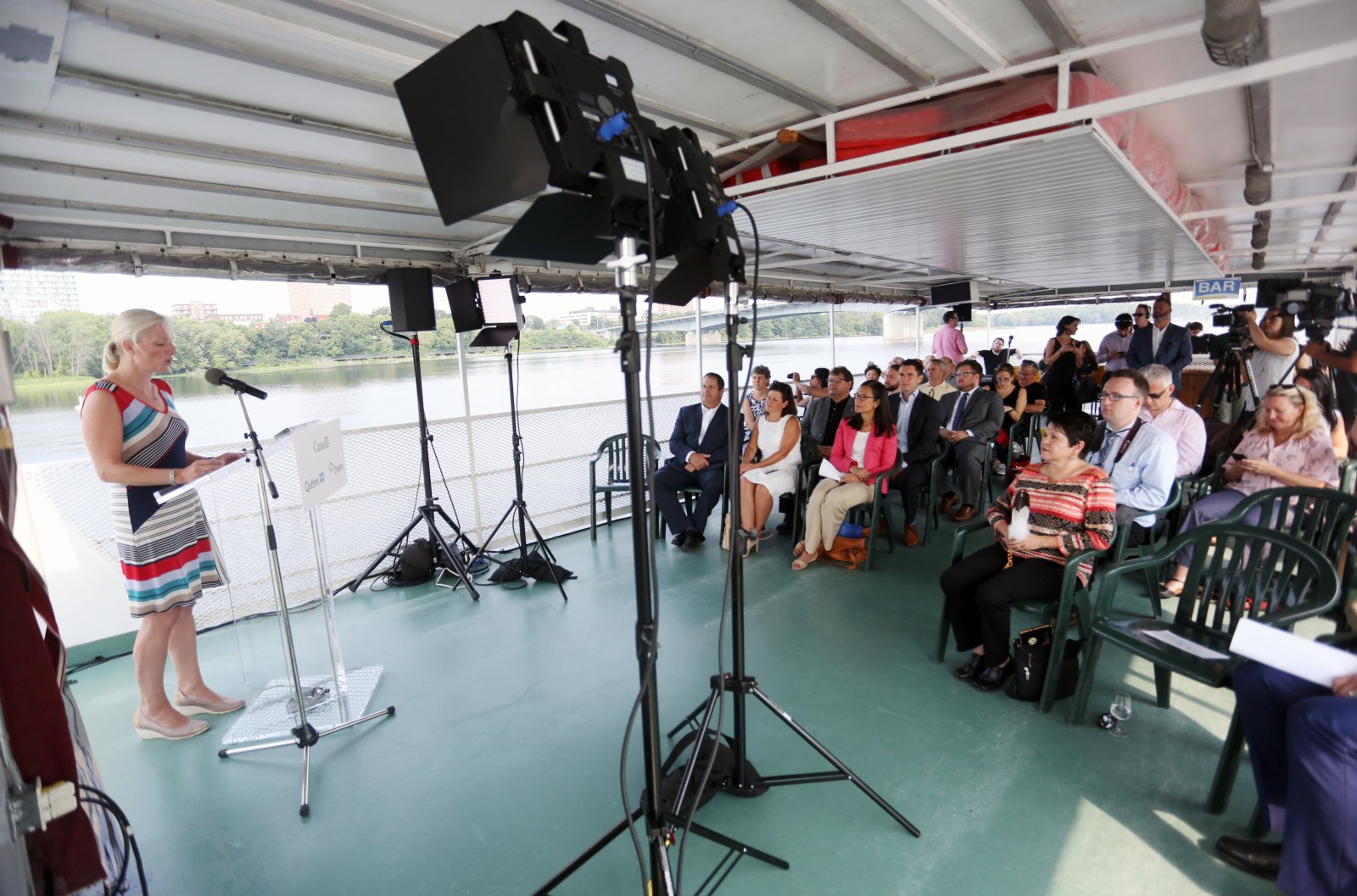
Spring flooding a climate concern, minister says
McKenna and other MPs joined provincial politicians and ministers, staffers, journalists and a small crowd for a short boat ride on the Ottawa River to visually highlight the heritage designation now conferred upon the entire length of the river.
The Ontario portion of the river was designated as a Canadian Heritage River in July 2016 by the Ontario and federal governments. Now Quebec is on board, and has designated the Quebec portion as a historic site under the Cultural Heritage Act. The river is now part of the Canadian Heritage Rivers System.
#OurRivers Great celebration today. Congratulations to everyone who made this possible! https://t.co/kagLaiG6xJ
— Canadian Heritage Rivers (@CdnRivers) August 21, 2017
Addressing the crowd, McKenna said the designations “recognize the river’s remarkable cultural heritage, its historic use as a trade and transportation route for Indigenous peoples, and its continued importance to the Indigenous peoples and communities that live along its shores.”
She also made several remarks about climate change, including linking the floodwaters this spring that led to an emergency for thousands of people across Central Canada with a changing climate. A report this month from a cross-border body said high water levels and floods are still pounding the region and causing “severe hardships” to residents and business owners.
As the greenhouse effect warms the planet, scientists say floods, droughts, wildfires and other extreme weather events are expected to occur more often and with greater severity.
“With the impacts of climate change, we’re going to see more extreme weather events,” said McKenna.
“We saw flooding this year. This is a powerful river and a reminder that we don’t control our environment, but our actions will impact it. It’s a reminder that we need to continue taking action against climate change,” she said.
“Climate change is real, it’s having direct impacts on people right now, and we need to be working together to tackle one of the greatest challenges we face, taking actions to protect natural spaces and rivers and waters is an extraordinarily important part of that.”
A heritage designation is largely symbolic, officials said, not specifically acting as protection in itself, but giving ammunition to those wishing to defend it in subsequent fights.
Asked about the significance in real terms, McKenna said designations were “critically important.”
“You need to understand the importance of, for example, the Ottawa River so you really want to protect it...this is obviously just a first step. We know we need to be doing more to protect the river. Recognizing its importance is important but also making sure that we put the measures in place to protect it.”
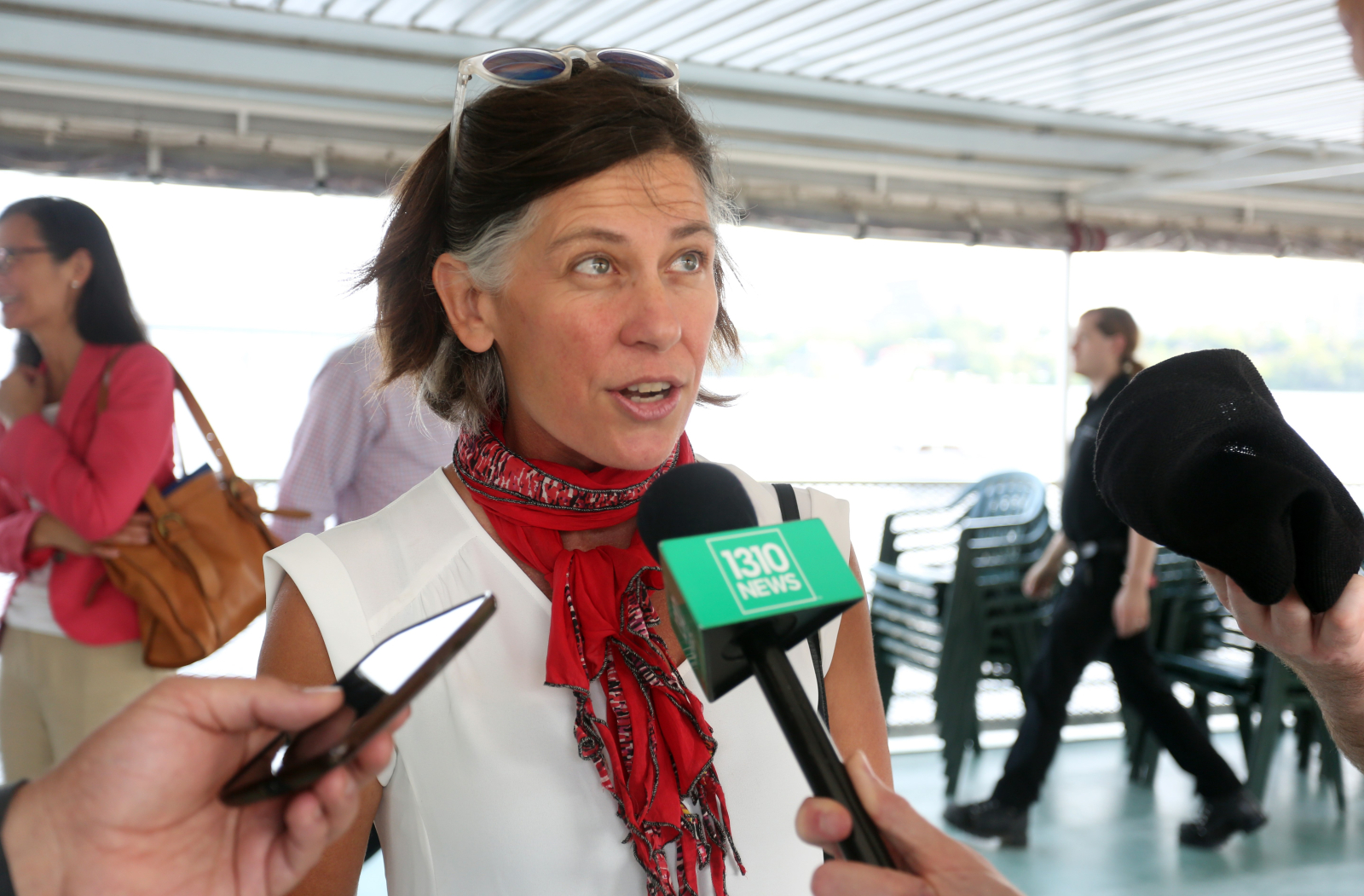
Riverkeeper tips hat to Hopkins, Commanda
Ottawa Riverkeeper Meredith Brown called the push for a heritage designation for the river was a grassroots initiative started by the late MP for Renfrew-Nipissing-Pembroke, Len Hopkins, alongside the late Algonquin Elder William Commanda, whose granddaughter Claudette Commanda spoke at the event.
“They were the force together that went around this vast watershed that’s so huge, across the river, back and forth, community to community, to talk about the importance of the Ottawa River,” said Brown.
A Parks Canada representative said the designation had been an ongoing effort since 2003. Brown said the push wavered in intensity over the years, particularly when Hopkins died. Ottawa Riverkeeper organized a 2015 summit that eventually led to a renewed effort.
Claudette Commanda, in remarks to the crowd on the boat, said it couldn’t have been a better day to celebrate and acknowledge the Ottawa River, on the day of the total solar eclipse.
“Today is the day that our grandfather, the sun, and our grandmother, the moon, are going to meet one another,” she said.
“Let’s remember the importance of water, and this beautiful gift that the Creator has given us called life.”



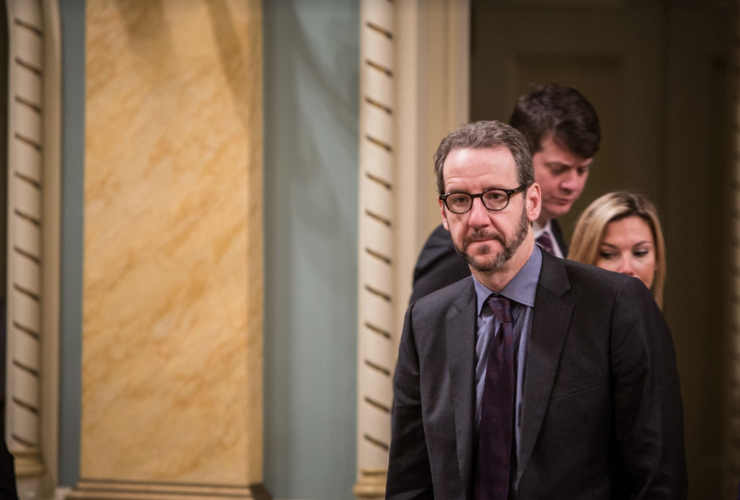

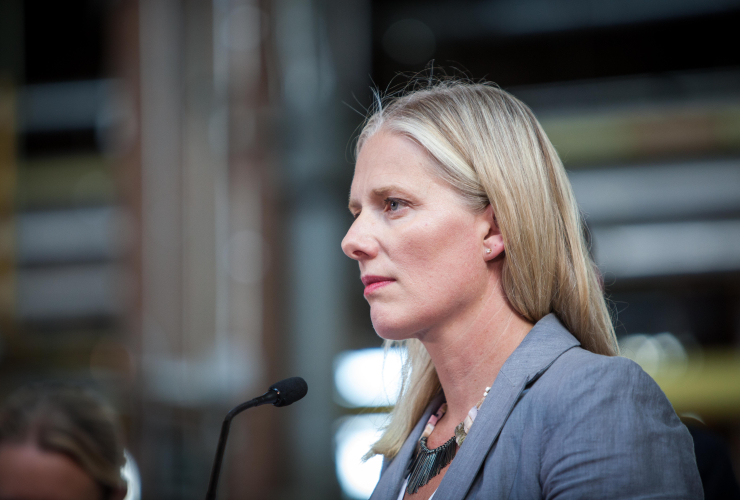
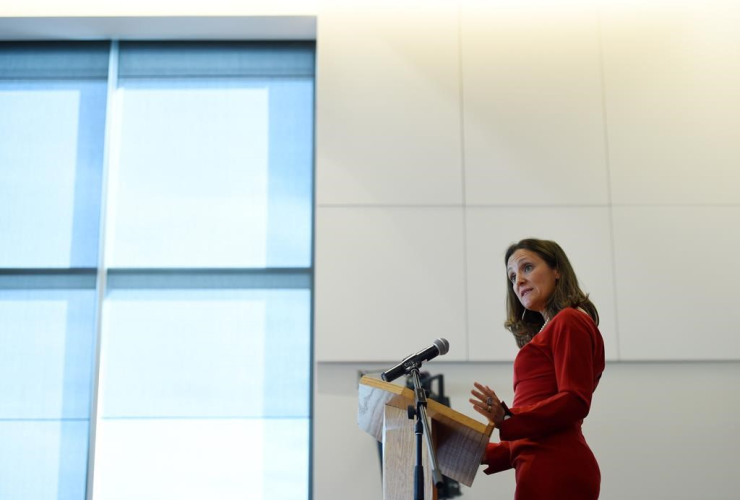
Comments